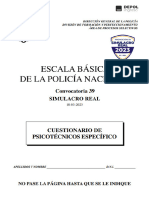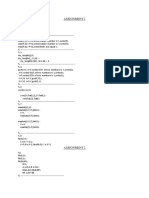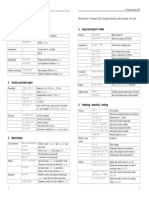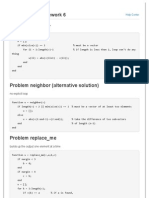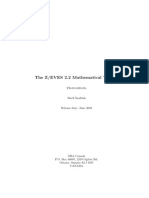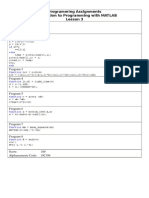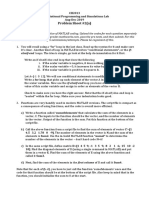0% found this document useful (0 votes)
2K views2 pagesProlog Cheat Sheet
This document contains definitions and logic rules for several predicates including:
1. member/2 defines membership of an element in a list
2. range/3 generates a list of integers between two values
3. eval/2 evaluates boolean expressions
4. Several additional predicates are defined including rev/2, count/2, find/3, depth/4, insert/5, path/4, getVar/2, noVars/1
The logic rule logic/1 defines constraints on seating arrangements with predicates like nextTo/3. Additional definitions include child/2, mother/2, anc/2 and a test case for grandparent/2. Dynamic predicates are also declared.
Uploaded by
laCopyright
© © All Rights Reserved
We take content rights seriously. If you suspect this is your content, claim it here.
Available Formats
Download as DOCX, PDF, TXT or read online on Scribd
0% found this document useful (0 votes)
2K views2 pagesProlog Cheat Sheet
This document contains definitions and logic rules for several predicates including:
1. member/2 defines membership of an element in a list
2. range/3 generates a list of integers between two values
3. eval/2 evaluates boolean expressions
4. Several additional predicates are defined including rev/2, count/2, find/3, depth/4, insert/5, path/4, getVar/2, noVars/1
The logic rule logic/1 defines constraints on seating arrangements with predicates like nextTo/3. Additional definitions include child/2, mother/2, anc/2 and a test case for grandparent/2. Dynamic predicates are also declared.
Uploaded by
laCopyright
© © All Rights Reserved
We take content rights seriously. If you suspect this is your content, claim it here.
Available Formats
Download as DOCX, PDF, TXT or read online on Scribd
/ 2

